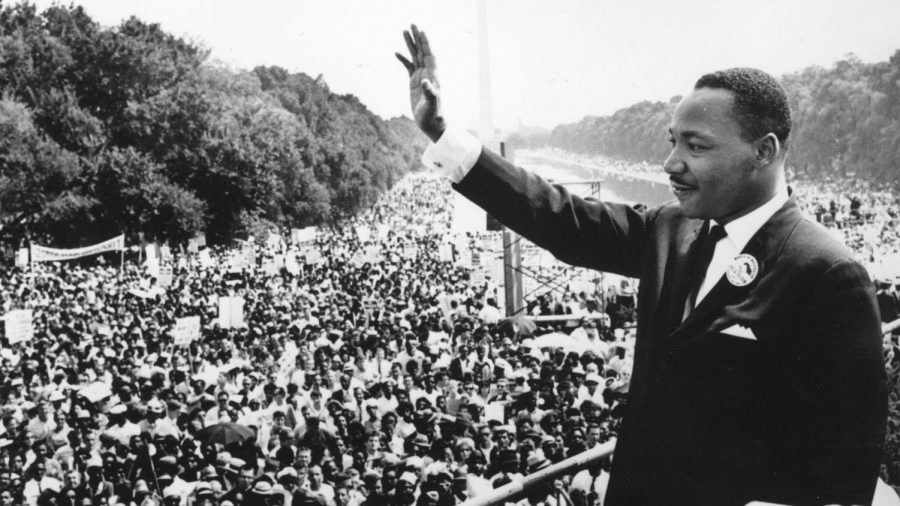Remembering Martin Luther King Jr.’s Legacy
Martin Luther King Jr. was an American minister and civil rights leader throughout the 1950s and 60’s. He was born in Atlanta, GA, and was later assassinated in Memphis, TN at the age of 39. He did many great things throughout his lifetime, so it is no surprise that we still celebrate his accomplishments today. On the third Monday each January, we remember what King did in order to move America in the right direction.
In December of 1955, King led his first peaceful protest: the Montgomery bus boycott. It was held after Rosa Parks, an African American woman, refused to give up her seat to a white person. The boycott lasted over a year and eventually led to the Supreme Court declaring that segregated buses were unlawful. This boycott was only one of eight peaceful protests that King organized. King wanted to end racial discrimination and segregation in the United States in a peaceful way.
King had a huge impact on the United States and the rights of people of color. His movements led to the passage of the Civil Rights Act of 1964. This act “prohibits discrimination on the basis of race, color, religion, sex or national origin. [This bill] strengthened the enforcement of voting rights and the desegregation of schools” (dol.gov). But this Act was not enough. Additionally, King Jr. helped pass the Voting Rights Act of 1965 which “aimed to overcome legal barriers at the state and local levels that prevented African Americans from exercising their right to vote as guaranteed under the 15th Amendment to the U.S. Constitution” (history.com). King also was pivotal in passing the Fair Housing Act of 1968. These acts collectively made it illegal to openly discriminate based on color and religion.
In 1968 King was assassinated at the Lorraine Motel by James Earl Ray. He was standing on a balcony when a bullet entered his right cheek then traveled down his spinal cord until stopping in his shoulder. The assassination of King turned everybody’s heads and essentially put a spotlight on the civil rights movement.
King’s influence was felt all over the world. In South Africa, Nelson Mandela used King’s principles of nonviolence almost 30 years after his death to help end apartheid. He also inspired Albert Lutuli, a teacher, an activist, a Nobel Peace Prize winner, and a politician who fought for racial justice. In Northern Ireland, John Hume said that King was truly their inspiration when having to address discrimination and prejudice. They followed his examples in order to form the Irish civil rights movement, which led to the equality of all people in Northern Ireland.
Martin Luther King Jr. is a symbol of peace, hope, and equality around the world. He illustrated the power of nonviolent protests and paved the way for many prominent leaders in social justice. He was a single man who dedicated his life to changing his community for others and ended up changing the world. He had a dream that one day there would be no more discrimination and segregation. He started people on the right path and made the world a better place because of it. But…we have a long way to go. That is why we celebrate him every year and will continue to do so for generations to come.


